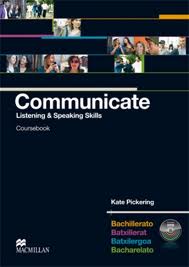Entradas
Mostrando las entradas etiquetadas como Ana´s diary
Writing tips!
- Obtener enlace
- Correo electrónico
- Otras aplicaciones

The six steps of the writing process When we write we do more than just put words together to make sentences. Good writers go through several steps to produce a piece of writing. PRE-WRITING (THE PLANNING IN THREE PARAGRAPHS ) Choose a topic: (elige el tema que te resulte más fácil de desarrollar) Gather ideas: When you have a topic, think about what you will write about that topic (decide que vas decir sobre el tema). Organise: Decide which of the ideas you want to use end where you want to use them. Choose which idea to talk about first , which to talk next and which to tal about last. (Piensa que vas a decir en cada párrafo, lo que vas a poner primero, segundo, etc. DRAFTING Write : Write your paragraph or essay from start to finish. Use your notes about your ideas and organisation. REVIEWING AND REVISING (EDITING 1) Review structure and content: Check what you have written. Read your writing silently to yourself or aloud, perhaps to a friend.
- Obtener enlace
- Correo electrónico
- Otras aplicaciones

1º AMPLIACIÓN COMMUNICATE 1 page 37 Functional language: exercises 1, 2 and 3. We work with the phrase bank clas sifying the expressions in: asking about plans and options making suggestions making an arrangement being evasive showing enthusiasm suggesting an alternative ++++We have revised and listened track 55 from page 36 in order to remember the two dialogues. DICTATION RULES IN SPORTS FOOTBALL When there is a penalty*** , the goalkeeper must have both feet on the goal line and must not move until the player taking the penalty kicks the ball. If the goalkeeper starts to dive before the ball is touched, then the penalty has to be taken again. ***** A penalty is a kick that a player takes from 10 metres in front of the goal after a foul has been committed inside certain area. TENNIS After throwing the ball up in the air while serving , the player´s feet must not come down inside the line of the tennis court until he or s
Money: Vocabulary about problems and solutions.
- Obtener enlace
- Correo electrónico
- Otras aplicaciones
Practice with Future tenses: translation
- Obtener enlace
- Correo electrónico
- Otras aplicaciones

SENTENCES IN THE FUTURE AND THEIR TRANSLATION INTO ENGLISH. WRITING ACTIVITY FOR BACHILLERATO 1. - ¿Te apetece algo de beber? No tomaré nada, gracias. Do you feel like drinking something? No, I won´t have anything, thank you. 2.- Ahora no llamaré a Claire porque estará haciendo los deberes. I won´t call Claire now because she will be doing homework. 3.- El próximo año por estas fechas estaré estudiando en la universidad. This time next year I´ll be studying at university. 4.- ¿Qué estarás haciendo mañana por la mañana? What will you be doing tomorrow morning? 5.- La próxima semana a estas horas estaremos estudiando inglés. This time next week I´ll be studying English. 6.- Coge tu abrigo. Parece que va a llover. Bring your coat. It seems to be going to rain any moment. 7.- Tengo tantos deberes. No te preocupes, te ayudaré. I have so much homework. Don´t worry, I´ll help you. 8.- Mañana a estas horas estaré viajando a Nueva York. This t
9th January 2015, Ana´s class diary
- Obtener enlace
- Correo electrónico
- Otras aplicaciones

2º AMPLIACIÓN UNIT 6 VIDEO WATCHING FROM THIS BLOG "TIPS FOR A HEALTHY LIFESTYLE" (We have played twice.) WHAT´S UP HEALTH PROBLEMS: VOCABULARY SB, page 34 1º BACHILLERATO 3/4 After yesterday´s explanation we have done some classwork, WB, pages 30-31, exercises 6, 7, 8, 9, 10, 11 and 12 ( the last ones were done but not corrected, though I am considering to have an exercise similar in the next text) It is a very talkative large class, with them I go very slowly. The lessons are painfully slow because of the constant interruptions and the noise of their chatter and they usually have very little interest or attention during the explanations and corrections. Bad attitude (like trolls) today as every Friday. Planning of the following week 13th January: Homework, WB: unit 3, pages 20 to 23 ( both included) we are having the exercises corrected. 15th January Reader´s test 16th January Listening activities from SB & WB or simila
Different kinds of bad
- Obtener enlace
- Correo electrónico
- Otras aplicaciones
Ana´s diary,5th December: Modal verb exercises
- Obtener enlace
- Correo electrónico
- Otras aplicaciones

2º AMPLIACIÓN We have devoted the class to comment the book "This Rough Magic". We have covered from the beginning to chapter 6. 4º ESO KEY WORDS OF THE PRESENT PERFECT TENSE 1º BACHILLERATO 3/4 I have written the corrections of pages 21 and 22 of the WB. I have them on Google Drive and will share them with students I have on the group 1º Bachillerato. If you are interested, the only thing you have to do is sending me an email with your name and saying you want to be in the group.
Speaking Shakespeare: Part 2 & 3
- Obtener enlace
- Correo electrónico
- Otras aplicaciones
Happy Thanksgiving
- Obtener enlace
- Correo electrónico
- Otras aplicaciones
Thanksgiving Day is a national holiday celebrated primarily in the United States and Canada as a day of giving thanks for the blessing of the harvest and of the preceding year. Several other places around the world observe similar celebrations. It is celebrated on the fourth Thursday of November in the United States and on the second Monday of October in Canada. Thanksgiving has its historical roots in religious and cultural traditions, and has long been celebrated in a secular manner as well. In the United States, the modern Thanksgiving holiday tradition is commonly, but not universally, traced to a poorly documented 1621 celebration at Plymouth in present-day Massachusetts. The 1621 Plymouth feast and thanksgiving was prompted by a good harvest. Pilgrims and Puritans who began emigrating from England in the 1620s and 1630s carried the tradition of Days of Fasting and Days of Thanksgiving with them to New England. Several days of Thanksgiving were held in early New E
BBC Learning English: Video Words in the News: Snow in the US (26th Nov...
- Obtener enlace
- Correo electrónico
- Otras aplicaciones
Education System in UK
- Obtener enlace
- Correo electrónico
- Otras aplicaciones

EDUCATION SYSTEM IN THE UK Across the UK there are five stages of education: early years, primary, secondary, Further Education (FE) and Higher Education (HE). Education is compulsory for all children between the ages of 5 (4 in Northern Ireland) and 16. FE is not compulsory and covers non-advanced education which can be taken at further (including tertiary) education colleges and HE institutions (HEIs). The fifth stage, HE, is study beyond GCE A levels and their equivalent which, for most full-time students, takes place in universities and other HEIs and colleges. Early Years Education In England since September 2010, all three and four year olds are entitled to 15 hours of free nursery education for 38 weeks of the year. Early Years education takes place in a variety of settings including state nursery schools, nursery classes and reception classes within primary schools, as well as settings outside the state sector such as voluntary pre-schools, privately run nur
Ana´s diary
- Obtener enlace
- Correo electrónico
- Otras aplicaciones

2º BACHILLERATO INTRODUCING YOURSELF/YOURSELVES INTERVIEWS DESCRIBING A PHOTO WATCHING A DVD COMMUNICATE 2 4º C 15 IRREGULAR VERBS WB, p 13 DICTATION WB, p 12 READING COMPREHENSION HOMEWORK, pps 9 & 10 FUNNY VIDEO: TEACHER RAPPING WITH IRREGULAR VERBS. 1º BACH. 3/4 15 PHRASAL VERBS 15 SENTENCES USING THE PRESENT PERFECT REVISING PHRASAL VERBS USING ANA´S BLOG 1º AMPLIACIÓN THREE GROUPS INTRODUCING YOURSELF/YOURSELVES INTERVIEWS DESCRIBING A PHOTO WATCHING A DVD COMMUNICATE 2 15´ SPEAKING PRACTICE
Ana´s diary
- Obtener enlace
- Correo electrónico
- Otras aplicaciones

2º AMPLIACIÓN WE SWITCH SESSION AS WE DID ON MONDAY, 13TH 1º AMPLIACIÓN SUM TEST UNIT 1 4º B GROUP 1: JENNY GROUP 2: SMALL CLASS SB p 11 EX: 4, 5, 6 & 7 REVISION OF USED TO WE COMMENT HOW IMPORTANT IT IS TO REALLY KNOW THE IRREGULAR VERBS BECAUSE 80% OF THE CONTENTS OF BUILD UP 4º ESO, OUR BOOK ARE RELATED TO THEM: PERFECT TENSES PASSIVE CONDITIONAL SENTENCES PAST SIMPLE REPORTED SPEECH SUBORDINATED CLAUSE
Ana´s Diary: 14th October
- Obtener enlace
- Correo electrónico
- Otras aplicaciones

4ºB SB p 9 LISTENING EXERCISES 4 &5 PRONUNCIATION CLASSIFY USEFUL SENTENCES EX. 6 HOMEWORK WB p 9 & 10 WRITE & STUDY15 VERBS FROM HURT TO MEAN 1º BACHILLERATO 3/4 1º BACH. 3 WB CORRECTION pps 5,6,7 & 8 p9 PHRASAL VERBS (I´ll post the answers on Thursday 16th, I forgot bringing the book) 1º BACH. 4 ORAL SKILLS WITH MIGUEL 1º AMPLIACIÓN G1 COMMUNICATE 1- LISTENING REVISION p 6 exercises 4 and 5 RISKS AND BENEFITS OF USING SOCIAL NETWORKING SITES WHAT IS A HIKITOMORI? WE WATCH A 5-MINUTE YOUTUBE VIDEO ABOUT THIS TOPIC SOCIAL INTERACTION INTERNET ADDICTION ISOLATION HERMITS G2 and G3 SAME AS ACTIVITIES AS THE OTHER 2 DAYS. 1º BACH. PENDIENTES DE INGLÉS WE ARE MEETING EVERY TUESDAY, SEVENTH
Anna´s Diary
- Obtener enlace
- Correo electrónico
- Otras aplicaciones

1º AMPLIACIÓN MONDAYS & WEDNESDAYS BIG GROUP AT THE SUM COMMUNICATE 1 pps 10 LIFE CHOICES GCSE´S A LEVELS APPRENTICESHIP VOCATIONAL TRAINING LISTENINGS, EXERCISES 1,2 & 3 COMPLETE THE CHART ON NOTEBOOKS NOTE-TAKING WRITE IN YOUR OWN WORDS FOUR STUDENTS DIDN´T ATTEND CLASSES. NEXT BIG CLASS WE ARE HAVING THE EXAM UNIT 1. BE AS PUNCTUAL AS POSSIBLE 2º AMPLIACIÓN GROUP 1 : FINAL TASK p 8, Jenny´s session GROUP 2: LISTENING p 12 COMMUNITY CARE Care in the Community (also called "Community Care" or "Domiciled Care") is the British policy of deinstitutionalization, treating and caring for physically and mentally disabled people in their homes rather than in an institution. Institutional care was the target of widespread criticism during the 1960s and 1970s, but it was not until 1983 that the government of Margaret Thatcher adopted a new policy of care after the Audit Commission published a report called '
Benefits and Risks of Facebook
- Obtener enlace
- Correo electrónico
- Otras aplicaciones
The invention of the Internet brought along with it a mind-boggling number of websites that are used for all sorts of things. Most of these websites and their services make our lives easier, but everything has its drawbacks and social networking sites, like Facebook are no exception. The controversy begins to swirl when users weigh the pros and cons of the site. Do the potentially hazardous risks of using Facebook outweigh the benefits and connectivity that it offers? In today’s world, it’s not about who you know, but more so about the people that know and have a connection with you. Facebook has been the number one facilitator of that theory for more than half a decade. By now, anyone who knows anything about social networking uses Facebook everyday or at least has an account. The reason there are 500 million people registered to the site is because Facebook gives users the ability to connect with people they see everyday or one's they haven't seen for years. Facebook is